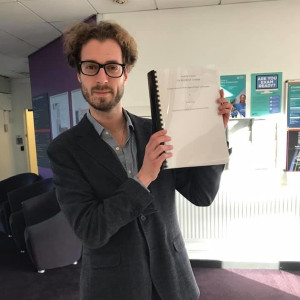GCSE English Literature can be an interesting subject when you get to study a text you enjoy reading, but even if you are stuck with a book you find uninspiring, there are plenty of resources online that can help you to understand why other people think it is worth studying.
1. The BBC GCSE Bitesize website has sections for all of the set texts that are studied for GCSE English. You can find revision notes and videos to help you to pick out the main themes, understand how plot and character are developed or how a poem is structured, or to set the text in a wider context. The site also has sample questions and tests that you can use to check your progress, which makes it a useful tool for revision as well as a resource you can use while you are studying a text in class.
2. S-Cool is another good revision website, but it doesn’t cover all of the GCSE English Literature texts. It mainly focuses on poetry and if one of the poets that you are required to study is covered here, you will find some useful study resources to help you to learn more about them and their work.
3. Englishbiz offers resources that can help you to improve your analytical and essay writing skills, rather than help understanding specific texts. You can find advice on how to read different kinds of texts, including the novels, short stories, poems and plays that you will need to study during your English Literature course, as well as some tips to help you to write successful essays.
4. Universal Teacher is a similar site, although it has a few more resources related to individual texts studied at GCSE level. It also has a guide to getting ready for the literature exam that will help you to identify the qualities that examiners are looking for in a good answer and the characteristics that you should be looking for when you are studying your texts.
Get information about hiring a private tutor for English tuition here.
5. Another useful guide to help you to plan and structure your essays is the guide to writing techniques posted on the Swot Revision website. It describes a couple of alternative approaches that you can try out before the exam to see which works best for you.
6. Essentially Education will also help you to structure your literature essays, but it also has guides to other ideas that you need to understand for your English Literature GCSE and a useful glossary to the terms that you may come across.
7. The Spark Notes website has resources that can help with some of the GCSE texts. As well as guides to the texts, there are plenty of interactive tools and quizzes that can help you to check how much you have learned. One particularly useful feature are the sections that highlight and explain important quotations from the texts, which can help you to spot the best pieces of evidence to use in your essays.
8. Sheer Poetry is a useful resource for the poetry sections of your English Literature course. It covers many of the poets whose works are on the syllabus and even has some articles written specifically for GCSE students by the poets themselves. There are plenty of articles on individual poems, but you will also find useful resources like Gillian Clarke’s guide to reading poems for content, form and language.
9. If you are studying Shakespeare for your English Literature GCSE, there are many resources available online that can help you to understand and write about his plays. Shakespeare Help has links to resources relating to some of the most commonly studied plays, many of which will be useful for GCSE students. Manga Shakespeare is another interesting site that provides some free resources for Shakespeare’s plays. The glossaries, which explain some of the old-fashioned words and phrases used by Shakespeare, are particularly useful. The Globe theatre has created educational websites for the plays it has recently produced, which have some really useful features, including synopses and character guides, as well as a tool that highlights examples of literary effects such as repetition or dramatic iron in the texts.
10. The British Library has some interesting English literature resources on its website, including an English Timeline that can help you to put some of the texts and authors studied at GCSE into context.
See related articles below:
- English literature GCSE
- English GCSE - Shakespeare
- English literature - GCSE prose
- English literature - poetry
- English GCSE post 1914 prose
.
















